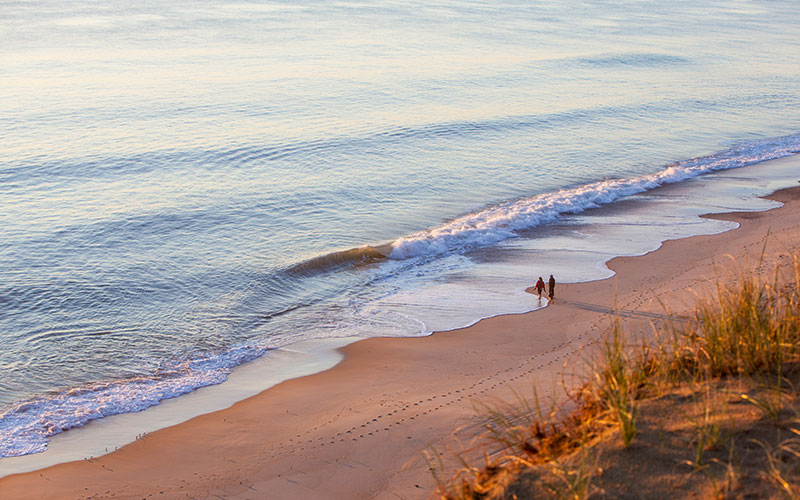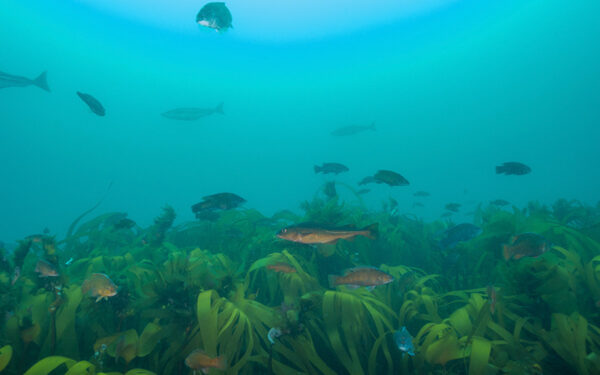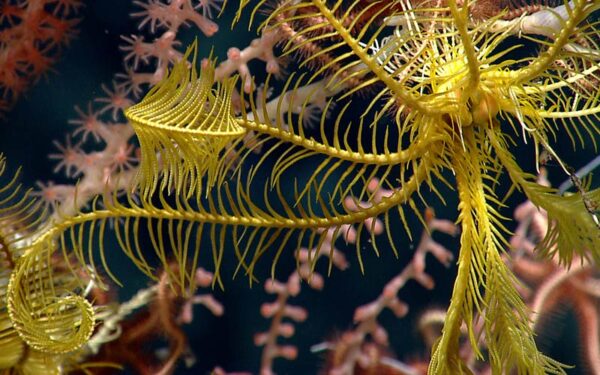
Like many of us, New England’s congressional delegation is probably enjoying our ocean this summer — and should return to DC ready to protect it. Photo: EcoPhotography
New England’s congressional delegation is currently home for the late summer recess. Away from the DC hustle and bustle, it is safe to say that many of our Senators and Representatives are enjoying New England’s ocean and remembering that it’s part of our New England way of life. It’s the perfect time to reinforce the fact that the ocean is essential to the health of our planet – and ask that they take concrete steps to protect it.
We should remind them of all our ocean provides, but also that it’s increasingly at risk. While it buffers the planet against the impacts of climate change, the ocean is warming and turning more acidic at alarming rates. The Gulf of Maine is warming faster than nearly anywhere else on Earth. These changes threaten the safety and the livelihoods of those who depend on it, from kelp farmers to surf instructors.
But it is not too late for us to turn the tide. Here are three actions we can ask our members of Congress to take to create a healthy ocean for the future.
1. Block the Expansion of Offshore Oil Exploration and Drilling
One crucial step to protect our ocean is to stop the expansion of offshore oil and gas drilling in New England — and all U.S. waters. Last year, the Trump administration announced a new five-year plan that would open nearly all of U.S. continental shelf waters to oil and gas drilling. CLF has opposed offshore drilling since the 1970s, and we’re fighting this proposal too.
A healthy ocean is worth so much more than oil and gas. Every year, New England’s ocean generates $17.5 billion for our regional economy. Expanding offshore oil and gas drilling would contribute to climate change, threaten fisheries, and harm marine wildlife such as the endangered North Atlantic right whale. It is also the wrong direction for finding new energy sources. We need to turn to our growing renewable energy sources, not look backward at fossil fuels.
2. Create More Fully Protected Areas in the Ocean
The Northeast Canyons and Seamounts Marine National Monument is the first and only marine national monument in the U.S. Atlantic Ocean. It should be the first of many.
The ocean is our most effective buffer against the devastating impacts of climate change. It absorbs more heat and climate-damaging emissions than anything else on the planet. But, as a result, the ocean itself is undergoing rapid ecological change, increasing stress on marine species and habitats. Protecting more of our ocean can make it more able to withstand the climate crisis.
A recent Center for American Progress Report concludes: “As climate change drives unprecedented change across the ocean, [marine protected areas] are one of the United States’ most powerful tools to protect each region’s unique biodiversity, fisheries, and way of life.’ Yet only a tiny fraction of New England’s ocean —and under 5 percent of the global ocean — is protected.
Protecting places like the Canyons and Seamount are critical to ensuring the ocean’s long-term health. Within the monument’s boundaries, destructive activities like oil and gas drilling and commercial fishing are prohibited. Without these threats, the wide diversity of marine life in the monument can thrive.
We must create more fully protected areas in New England’s waters to promote resilient ocean ecosystems.
3. Maintain and Strengthen our Federal Fisheries Law
Today, the United States has some of the most sustainable fisheries in the world, thanks to our nation’s federal fisheries management law, the Magnuson-Stevens Fishery Conservation and Management Act (MSA). Conservation- and science-based management provisions are the backbone of the Magnuson-Stevens Act, which has helped rebuild 45 stocks since 2000. But here in New England, too many of our fisheries are still struggling to recover from decades of overfishing.
A bill recently introduced in the House threatens to undermine the successes of the MSA by creating loopholes around science-based catch limits and weakening rebuilding requirements for overfished stocks.
New England has more overfished stocks than any other U.S. region. Now is not the time to roll back the MSA. We want our fisheries and fishing communities to be healthy for years to come. To get there, we need fisheries management practices based on sound science and accountability.
You Can Help Protect the Ocean
Call your Senators and Representatives today and tell them to: block the expansion of offshore oil exploration and drilling, create more fully protected areas in the ocean, and maintain and strengthen our federal fisheries law.



